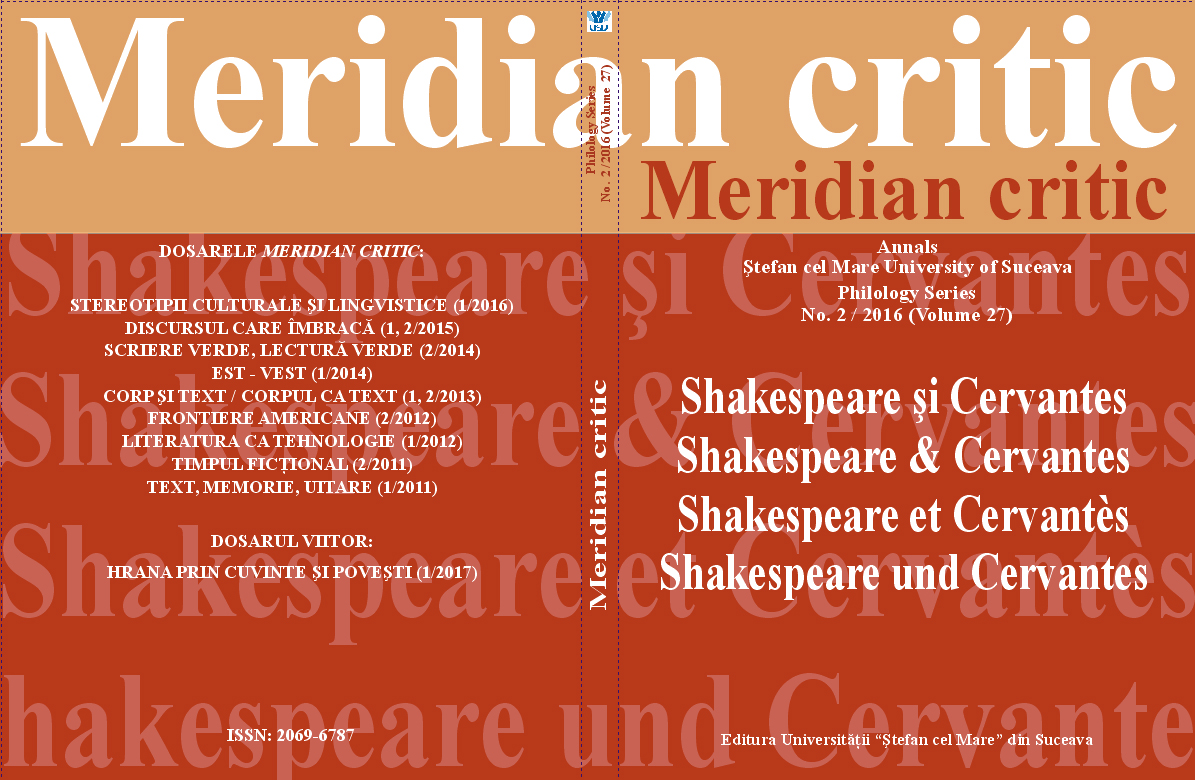Mit Shakespeare und Cervantes ins Exil: Thomas Mann liest “Don Quijote” und “Love’s Labour’s Lost”
With Shakespeare and Cervantes into exile: Thomas Mann reads "Don Quijote" and "Love's Labour"s Lost"
Author(s): Hans Georg ReinhardSubject(s): Studies of Literature
Published by: UNIVERSITATEA »ȘTEFAN CEL MARE« SUCEAVA
Keywords: Thomas Mann; Shakespeare; Shakespeare; Love’s Labour’s Lost; Cervantes; Don Quijote; Jews; National Socialism;Faust;
Summary/Abstract: Thomas Mann praised Miguel de Cervantes and William Shakespeare as great heroes of world literature und honoured them in his work. Instead of a planned political statement against the National Socialists, he combined a partly fictional diary of his first cruise to America with essayistic comments on Cervantes’ Don Quijote. The retelling of the episode of the Morisco Ricote and the use of the term “eradication” (Ausmerzung) - not found in the highly praised translation by Tieck – allows us to think at the Holocaust of the Jews. Thus, Voyage with Don Quijote can be read as an early protest against the inhuman policies of the National Socialists in Germany.In the novel Doctor Faustus we find Shakespeare’s Love’s Labour’s Lost in the form of an opera composed by Adrian Leverkühn, Thomas Mann’s creative, but demonically inspired hero. The novel does not only represent here the tragic fate of the German nation, but it also reads Shakespeare’s work from a gender perspective, exploiting a “proto-history of feminist Shakespeare reception” (Elsaghe; Bronfen) and offering a clarification for Mann’s statement that “the Shakespeare-play lies at the “core”.” (Mann, 2002, 428)
Journal: Meridian critic
- Issue Year: XXVII/2016
- Issue No: 2
- Page Range: 21-30
- Page Count: 11
- Language: German

